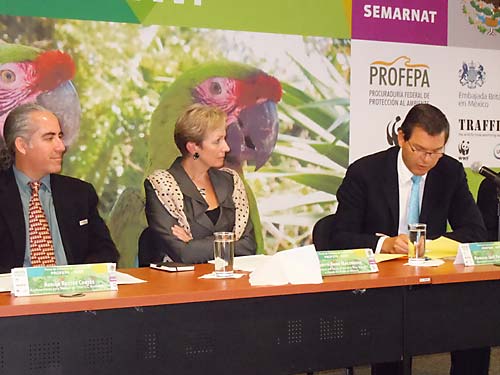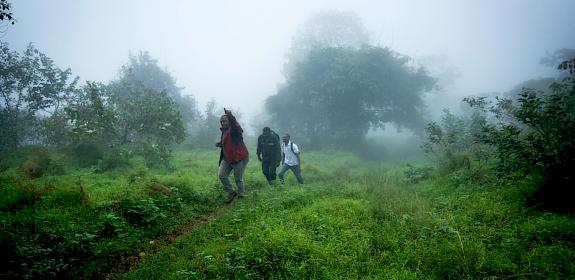Agreement to combat wildlife trafficking in Mexico
Mexico, July 2010—TRAFFIC and Mexico’s Federal Attorney for Environmental Protection (PROFEPA) have signed a co-operation agreement to combat illegal trade in wild plants and animals in Mexico.

The agreement was signed by Patricio Patrón Laviada, Head of PROFEPA and Adrian Reuter, representing TRAFFIC North America and WWF in the presence of Mrs Judith Anne McGregor, UK Ambassador to Mexico.
During the four years the agreement will run, TRAFFIC will help with capacity building of PROFEPA’s staff, and introduce more efficient materials and tools for combating illegal wildlife trade, coupled with improved management of seizures.
Speaking at the signing ceremony, Patrón Laviada acknowledged the highlights of the previous four years of co-operation between the organizations, which has seen 299 enforcement officers trained, the donation of equipment and reference materials on identification and management of species listed in CITES (the Convention on International Trade in Endangered Species of Wild Fauna and Flora), and the donation of equipment to assist with inspection of tropical timber and more than 2,000 toolkits to assist enforcement officers at Mexican border-crossing points.
The donations of equipment and training materials had been possible thanks to the support of the UK’s Strategic Programmes Fund and UK-Mexico Sustainable Development Dialogue.
In 2008, PROFEPA seized 27,264 illegal wildlife products, and a further 22,346 in 2009, with several major wildlife traffickers aprehended in wildlife trade hotspots such as the markets of Sonora and Xochimilco (Mexico City), Charco Cercado (San Luis Potosi), and several markets in the Bajio region.
Ambassador McGregor noted that as a mega-diverse country, Mexico, and the entire international community, have a commitment to conserving cultural and biological diversity.
Adrian Reuter endorsed the commitment of WWF through the TRAFFIC Programme to assist PROFEPA and other institutions to improve the management of natural resources in Mexico, home to 10% of the world’s biodiversity, "wealth that no doubt has a significant potential for the development of applications in medicine, agriculture and industry among many other uses".
“Mexico's biological heritage is at risk in part due to illegal wildlife use and trade,” said Reuter. “This constitutes a threat that needs urgent attention.”



